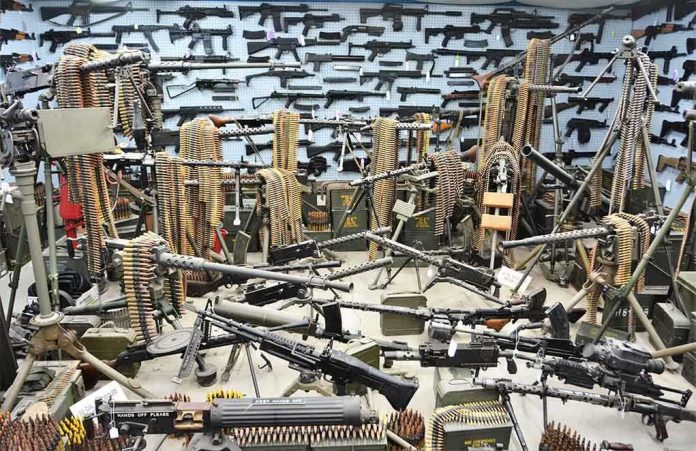
The Pentagon has halted shipments of critical munitions to Ukraine, blindsiding Zelenskyy’s forces while Russia intensifies its attacks across the battered nation.
Key Takeaways
- The Pentagon has paused shipments of essential munitions to Ukraine, including Patriot air defense systems, precision artillery rounds, and Hellfire missiles, due to dwindling U.S. stockpiles.
- Ukraine was not informed about the halt to military aid, leaving Kyiv scrambling for alternatives as Russian forces increase missile and drone attacks.
- President Trump is prioritizing American military readiness, especially considering potential conflicts with China and ongoing tensions in the Middle East.
- The Kremlin has welcomed the decision, suggesting reduced weapons shipments could hasten the end of the conflict on Russia’s terms.
- Military analysts warn that while air defense systems won’t win the war for Ukraine, their absence could lead to swift defeat.
America First: Pentagon Prioritizes U.S. Military Readiness
The Pentagon’s decision to halt shipments of critical munitions to Ukraine marks a significant shift in American foreign policy under President Trump’s administration. This move follows a comprehensive review of U.S. munitions stockpiles, which revealed concerning shortages in artillery rounds, air defense missiles, and precision munitions essential for America’s military preparedness. The decision affects vital systems, including Patriot air defense interceptors, precision artillery rounds, and Hellfire missiles that Ukraine has relied upon to defend against Russian aggression.
“The decision was driven by the Pentagon’s policy chief, Elbridge Colby, after a review of munitions stockpiles raised concerns about the dwindling number of artillery rounds, air defense missiles, and precision munitions,” said Elbridge Colby.
Under the previous administration, the United States had provided over $100 billion in aid to Ukraine, including $43 billion in weaponry. This massive outflow has strained America’s defense industrial base, creating vulnerabilities that the current administration is now addressing. Rebuilding depleted stockpiles, particularly for sophisticated systems like Patriot interceptors, will take considerable time and resources. The administration’s stance reflects a commitment to ensuring America’s military remains prepared for its own defense obligations.
Ukraine Caught Off-Guard as Russia Intensifies Attacks
Ukrainian officials were reportedly blindsided by the announcement, with no prior notification from Washington about the impending pause in weapons deliveries. This lack of communication has left Kyiv scrambling to adjust its defense strategy against increasingly aggressive Russian operations. June saw a significant escalation in Russian missile and drone attacks across Ukraine, making the timing of the aid pause particularly challenging for Ukrainian forces already stretched thin by over two years of conflict.
“The Ukrainian side stressed that any delay or procrastination in supporting Ukraine’s defence capabilities would only encourage the aggressor to continue the war,” stated Ukraine’s foreign ministry.
In stark contrast to Ukraine’s alarm, Moscow has welcomed the decision. Kremlin spokesman Dmitry Peskov declared, “The fewer the number of weapons that are delivered to Ukraine, the closer the end of the special military operation.” This response suggests Russia sees the weapons pause as an opportunity to press its advantage on the battlefield. President Trump has consistently encouraged peace talks between Russia and Ukraine, believing that continuous weapons shipments only prolong the conflict without delivering a clear path to resolution.
Global Strategic Realignment Affects Ukraine Support
The decision to pause certain weapons shipments reflects broader strategic considerations beyond Ukraine alone. Increasing tensions in the Middle East, particularly regarding Iran’s nuclear program, have required the redistribution of critical American military assets. This global reallocation has created observable gaps in U.S. defense posture, including the transfer of a Patriot battalion from South Korea and the movement of naval assets like the USS Nimitz to address Middle Eastern contingencies.
“Tom Karako, a missile defense expert, emphasized that while air defense won’t win a war, its absence can lead to a swift defeat,” noted Tom Karako, a missile defense expert.
The Pentagon’s decision reflects a pragmatic assessment of America’s strategic priorities. With China’s continued military expansion in the Indo-Pacific and ongoing volatility in the Middle East, the administration has determined that maintaining adequate munitions stockpiles for potential conflicts in these regions takes precedence. Ukraine’s conflict, while significant, represents just one of several global theaters where American interests are at stake. This America First approach marks a clear departure from previous policies that critics argued overextended U.S. resources without sufficient consideration for domestic security needs.



